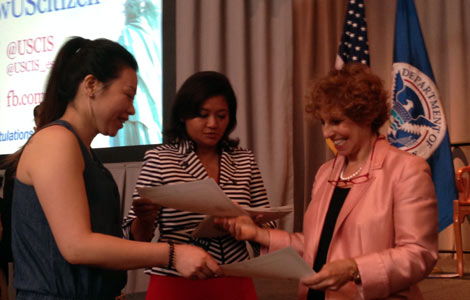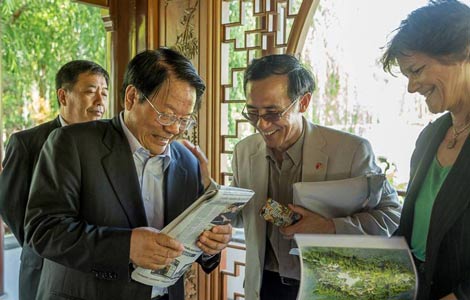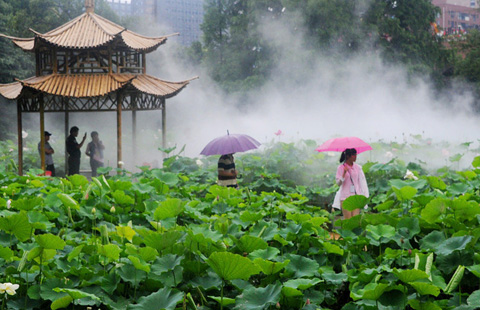Top court advocates new green tribunals
Updated: 2014-07-04 07:49
By CAO YIN (China Daily)
|
||||||||
Move aims to prevent local govts from influencing environment cases
China's top court supports hearing environmental and resources cases without regard to the administrative regions where such cases occur, aiming instead to let nature dictate the jurisdictions in a bid to prevent judicial intervention by local governments.
A guideline issued by the Supreme People's Court on Thursday on improving trials involving the environment and resources encourages grassroots courts to set up environmental tribunals based on the location of habitats.
"It means the upcoming tribunals will tackle cases that happen in similar ecological areas instead of administrative regions," said the top court's spokesman, Sun Jungong.
Ecological areas have no clear boundary, while an environmental dispute usually involves people living in diff erent areas, "so we have to change our current mentality to deal with related cases", Sun said.
Cross-regional tribunals can also be helpful in solving environmental disputes eff ectively, he added.
In June, the top court set up a special department to deal with cases relating to the environment and resources. The department is also responsible for guiding related trials at grassroots courts and providing a precedent for similar disputes.
The guideline asks high people's courts around the country to likewise establish an environmental and resource department, while intermediate and grassroots courts can build up similar benches based on the number of their environmental cases.
"For some grassroots areas, we're exploring the establishment of cross-regional environmental tribunals, which,I believe, not only will better protect the local ecology, but also get rid of governments'intervention," said Zheng Xuelin, the chief judge of the environmental and resource department in the top court.
Zheng confirmed that some grassroots courts have had pilot programs on setting up such tribunals based on similar ecological areas instead of based on administrative regions, for example in Guizhou province.
The province has been divided into four ecological areas and has arranged four courts to handle environmental disputes based on this division, he said, adding that the top court will help more provinces establish their own cross-regional environmental tribunals.
Lyu Keqin, deputy secretary-general of the All-China Environment Federation, echoed Zheng, saying that the top court's guideline and its establishment of the environment and resource department will contribute to hearing of cross-regional disputes by grassroots courts.
"It was common in the past to see a local government in the upper reaches of a river shuffle its own pollution responsibility to another government in the river's lower reaches, which wasted our federation's investment on ecological improvement," Lyu said.
"We took about hundreds of billions of yuan to boost the environment of the Huaihe River Basin, but failed. Governments along the river always protected their own interests and interfered with local courts'work," he said, adding that it is urgent to select a court to hear such cross-regional environmental disputes.

 Macy's 'Fourth' show will include made-in-China fireworks
Macy's 'Fourth' show will include made-in-China fireworks
 Smithsonian Folklife Festival 2014 features China and Kenya
Smithsonian Folklife Festival 2014 features China and Kenya
 Xi urges US to view China 'objectively'
Xi urges US to view China 'objectively'
 Xbox One readies for national debut
Xbox One readies for national debut
 Political plan
Political plan
 Naturalization ceremony at New York Public Library
Naturalization ceremony at New York Public Library
 Bridging the culture gap
Bridging the culture gap
 Consumers from China prefer niche luxury items
Consumers from China prefer niche luxury items
Most Viewed
Editor's Picks

|

|

|

|

|

|
Today's Top News
Private, foreign investment to aid tourism industry
Culture the best basis for ties
Chinese turns to US for milk products
Giving voice to voiceless people
China's presence in RIMPAC 'significant'
US hopes high for S&ED
Restrictions loosened in Shanghai trade zone
Top-level general expelled for graft
US Weekly

|

|







